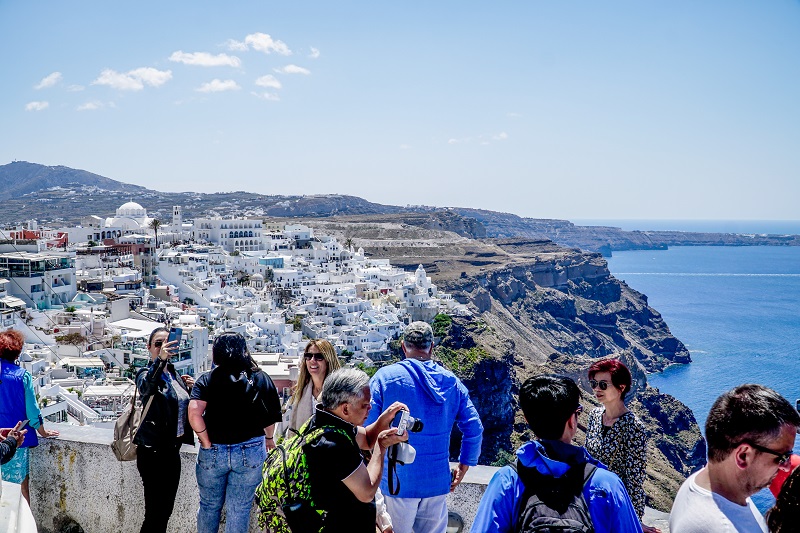Four studies reveal its course in 2025
A strong imprint was left by the closing of 2024 on the tourism industry, which is one of the most important economic arms of the country and gives an auspicious outlook.
Although the official figures from the Bank of Greece are expected in the coming months, surveys such as the one prepared by PwC and recently presented at the SETE conference, speak of a historic high and arrivals that may reach up to 41.6 million, i.e. an increase of 22.4% compared to 2023. According to SETE’s official figures, 2023 arrivals exceeded 36 million, while the 2022 reached approximately 30 million. (The above includes the number of tourists from the cruise).
Based on two more surveys conducted by About people on behalf of SETE and the other by INSETE, it is confirmed once again that tourism continues to be one of the most important pillars of the Greek economy, contributing approximately 13% to GDP annually. Greece continues to compete with countries such as Spain, Italy, France, Portugal, Turkey and Croatia, with key advantages being natural beauty, culture and hospitality. Italy, France, the United Kingdom, Germany and the USA remain the main markets from which it draws visitors, whose participation exceeds 50% of revenues.
However, the challenges are evident in infrastructure and in the management of tourist flows. Typical examples are popular destinations such as Santorini and Mykonos, where the overconcentration of tourists puts pressure on local communities and natural resources. Climate change is an event that affects the tourist experience in Greece and throughout the world. Fires and heat waves, such as those experienced in the summer of 2023 and 2024, are causing problems in popular destinations.
In this context, it seems that the way Europeans plan their trips is also changing. 80% do at least one of the following:
- They take weather forecasts into account before booking their holidays,
- They avoid places with high or low temperatures and choose something in between,
- They do not necessarily associate their holidays with water activities and
- They also change the time period, choosing other months outside the high season.
How citizens see tourism
But how do the citizens themselves see tourism in our country? Through the survey “Tourism in Greece”, the participants present two aspects of tourism: on the one hand, the “bright” side, which includes the natural beauty, hospitality and attractiveness of the country for visitors, and on the other they express concerns about challenges, such as punctuality in certain destinations with the phenomenon of profiteering and the burden or lack of infrastructure. Citizens recognize tourism as a key economic pillar, offering significant opportunities, especially for young people, but express concerns about the unequal distribution of benefits and the impact on local communities.
Tourism is closely linked to economic growth, attracting investment and creating jobs. They highlight the need for better management of tourism, with measures such as the strengthening of infrastructure, the extension of the tourist season, the need for control and fiscal regulation of short-term leases that increase the cost of living and consider it important to promote themed forms of tourism that respect the environment and the local community.
The three surveys were prepared and presented by the following organizations and speakers: “Competitiveness of Greek Tourism: The Critical Factors”. Prepared by INSETE and presented by Ilias Kikilia, Director General of INSETE. “Effect of geopolitical and macroeconomic developments on Tourist Flows”. Prepared by PwC and presented by Leonidas Papaioannou, Partner – Government & Public Sector of PwC Greece




